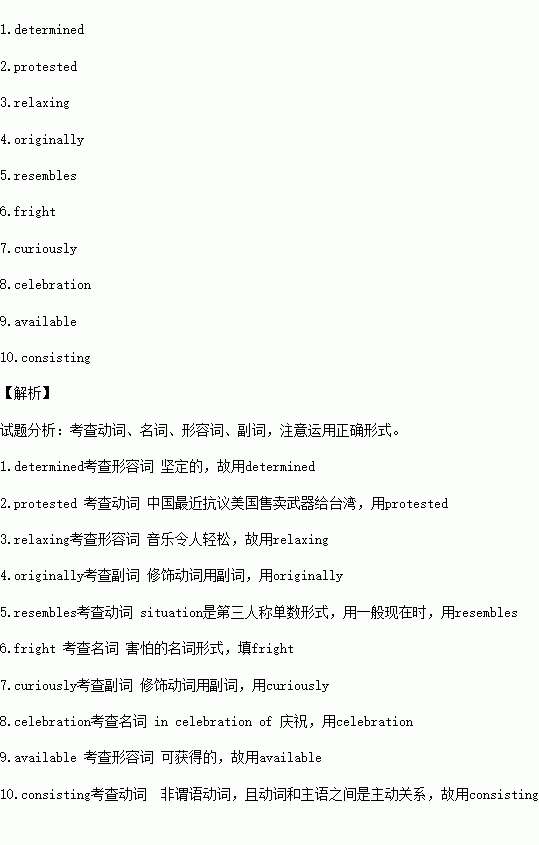题目内容
单词拼写
1.The______(坚定的)look on her face indicated that she would leave the firm.
2.China recently ______(抗议) at America’s decision to sell warships to Taiwan.
3.You can listen to soft music because I find it ______ (轻松).
4.The interview lasted longer than o_______(原来)planned.
5.The present situation closely r______ (相像) that of Europe in the 1990s.
6.The loud thunder gave me a f (害怕).
7.Not surprisingly, the young boy stared_______(好奇) at the baby tiger.
8.The party was held in c (庆祝) of parents’ silver wedding.
9.All the information about our school is _______(可获得的)online.
10.The research team_______(组成)of top scientists have made a breakthrough in the fight against AIDS.
练习册系列答案
相关题目


 escape from your feelings and get a "mood boost," even if just for a short time.However, substance use can not only make depression worse, but can cause you to become more depressed. 4.You will need special treatment for your substance problem.
escape from your feelings and get a "mood boost," even if just for a short time.However, substance use can not only make depression worse, but can cause you to become more depressed. 4.You will need special treatment for your substance problem.